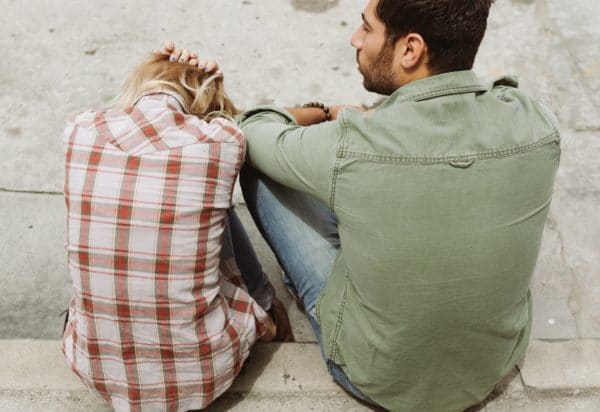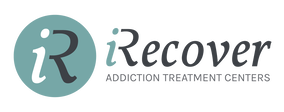Understanding The Cycle of Relapse & Recovery

When someone becomes addicted to alcohol or a drug, the addiction can become chronic, or ongoing. In fact, addiction is defined as a chronic brain disease by the American Society of Addiction Medicine. This means that the person who is knee deep in addiction doesn’t have some character flaw or lack of will power.
It means that their brain’s reward center has become addicted to the substance and because of this, that part of the brain desires more and more. And, when it doesn’t get more, it goes a bit haywire, throwing the body into a state of withdrawal, which can produce uncomfortable physical and emotional symptoms.
Why Do I Relapse?
Perhaps you’ve become addicted to alcohol or a drug like cocaine, heroin, pain pills, or some other drug. Chances are you’re aware of your addiction and you’ve likely tried to stop using that substance more than once. You may have even stopped for weeks at a time, but eventually, you fell back into using. Perhaps you thought you could control your intake, but sooner or later, the addiction was in full blast once again. You’re left wondering, “Why do I relapse?” Surely, you want to stop the addictive behavior, but you just keep falling back into it.
More often than you think, relapse is a part of recovery. Most people that desire to get free from addiction don’t just one day decide that they’ll get sober or clean and that’s that. If only it was that easy! Rather, many people go through stages of addiction, as well as stages of recovery. And, the stages of recovery may be marked with a number of relapses.
The Stages of Addiction
Let’s briefly discuss the stages of addiction. Full-blown addiction to any drug doesn’t normally happen overnight. You don’t start drinking one day and become addicted right away. You don’t start taking pain pills and become addicted to them in a few days. Granted, some drugs you can become addicted to quite easily, such as heroin or crack cocaine. But generally, addiction progresses in the following stages:
Stage 1: Initial Use – You start drinking or using a drug.
Stage 2: Substance Abuse – You start using or abusing the drug regularly.
Stage 3: Tolerance – Your body starts getting used to the amount of the drug you’re using, building a tolerance. This means you have to use more of the drug to get the euphoric or numbing effects you want to feel.
Stage 4: Dependence – Here in this stage, you’re becoming more and more dependent on the drug. You might try to quit, but it’s challenging because you enjoy the way the drug makes you feel, or you feel awful when you don’t continue to use it.
Stage 5: Addiction – When you’re addicted to the drug, you have to use the drug regularly. You may have to drink every day or pop a certain number of pills every so many hours. You don’t want to keep using, but you do. The withdrawal symptoms may be horrible as well, so you feel you have to keep using.
Stage 6: Relapse – Not everyone believes relapse is a stage of addiction, but due to the sheer volume of people in recovery that do relapse, it has merit.
The Cycle of Recovery and Relapse
According to the National Institute on Drug Abuse, it’s not uncommon for over half of men and women in addiction recovery to relapse at least once along their recovery journey. If you are struggling with an addiction and you’ve walked the recovery path before, you can probably relate to the recovery/relapse cycle. You want to stay sober and/or clean, but various factors have caused you to pick up that drink or drug again. Understand that just as addiction is a process, so is recovery. Those in early recovery are most prone to relapse, as well as those that don’t have a solid support network.
If you have a loved one who has relapsed, you may or may not be so understanding. It’s challenging when a loved one promises to stay sober and then relapses. You may be tempted to think they’re not trying or it’s a willpower issue, but addiction experts say that that’s not necessarily the case. Just as there are stages of addiction, there are stages of recovery. Relapse is part of those stages for some people, but the good news is that the relapses can stop at some point. When they can get the right addiction treatment for themselves and work hard at recovery, they’ll be able to break that cycle of recovery/relapse.
Interrupting The Recovery/Relapse Cycle
Professional addiction treatment, preferable at an inpatient or outpatient treatment center, is a great way to interrupt any recovery/relapse cycle that’s been going on. Reaching out for expert help can introduce you to addiction specialists who are trained to help people overcome or manage addiction problems – and reduce the chance of relapsing.
Just like you’d go see a physician for a chronic disease like diabetes, you can see an addiction expert for help to manage the chronic disease of addiction. They may treat you with a combination of treatment methods, such as medication, individual and/or group counseling, support groups, recovery classes, and more. They can certainly help you interrupt any recovery/relapse cycle that’s been going on. You’ll also want to learn what your triggers are so you can combat them if and when they arise. If driving by the liquor store triggers you to want to stop in to get some alcohol, don’t drive by it anymore. If your drug dealer calls you on the phone checking in to see if you want anything, block their phone number. Triggers do just that – trigger your thoughts to start ruminating about using again, so do your best at finding out what they are and steering clear of them.
Help For Addiction Recovery Relapses
If you’re struggling with an addiction to alcohol or a drug, consider reaching out for help today. You don’t have to continue to struggle, as there are professional substance abuse experts who will come alongside you to help you manage or overcome addiction once and for all. No more having to hide the addiction or feel shame about it. No more having to isolate or hurt loved ones due to the addiction.
Reach Out For Help
There is a way out of addiction, and here at iRecover Treatment Centers in Alberta, we’re here 24/7 to assist you. Give us a call at 1-877-387-4155 and get started on your recovery journey now.
Ready to take the next step on the road recovery?
Give us a call at 1-877-387-4155. We are available 24/7/365.
If your loved one needs addiction treatment, know that professional help is available and helpful. Here at iRecover Treatment Centers, we’re here around the clock to assist those in need any way we can. Addiction treatment in Canada can be just what your loved one needs to get free and begin creating the kind of life they truly desire.
[blogsidebar]
